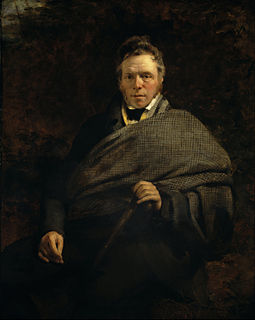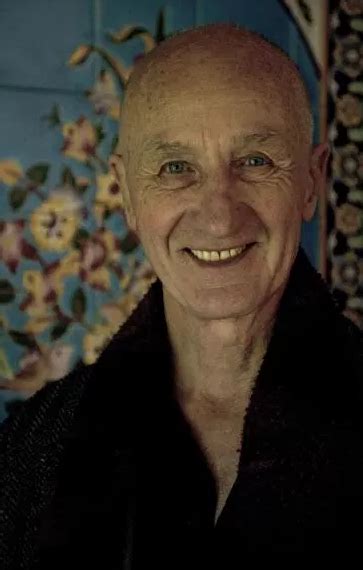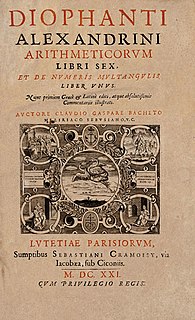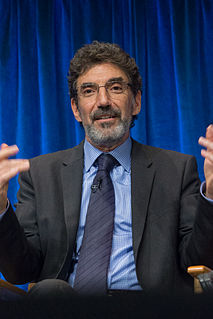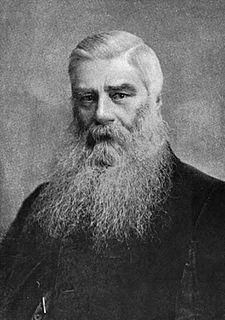A Quote by Elbert Hubbard
In the Life of Darwin by his son, there is related an incident of how the great naturalist once studied long as to just what a certain spore was. Finally he said, "It is this, for if it isn't, then what is it?" And all during his life he was never able to forget that he had been guilty of this unscientific attitude, for science is founded on certitude, not assumption.
Related Quotes
The great French Impressionist painter Renoir, right at the end of his very long life, said to a friend, "I am just now learning to paint." Renoir carried his gift with a humility which realized how much he still had to learn. Anyone who goes deeply into a field in life and realizes this, gains a sense of proportion that can only make you humble.
How did it happen that now he could see everything so clearly. Something had given him leave to live in the present. Not once in his entire life had he come to rest in the quiet center of himself but had forever cast himself from some dark past he could not remember to a future that did not exist. Not once had he been present for his life. So his life had passed like a dream. Is it possible for people to miss their lives the way one can miss a plane?
What a grin he had, what ferocious eyes, what a creature he was. He had dreamt himself an entire life and death. Ronan said, "I want to go back." "Then take it," said his father. "You know how now." And Ronan did. Because Niall Lynch was a forest fire, a rising sea, a car crash, a closing curtain, a blistering symphony, a catalyst with planets inside him. And he had given all of that to his middle son.
Once a man recognizes himself as a being surrounded by other beings in this world and begins to respect his life and take it to the highest value, he becomes a thinking being. Then he values other lives and experiences them as part of his own life. With that, his goal is to help everyone take their life to the highest value; anything which limits or destroys a life is evil. That is morality. That is how men are related to the world around them.
His epitaph: This tomb hold Diophantus, Ah, what a marvel! And the tomb tells scientifically the measure of his life. God vouchsafed that he should be a boy for the sixth part of his life; when a twelfth was added, his cheeks acquired a beard; He kindled for him the light of marriage after a seventh, and in the fifth year after his marriage He granted him a son. Alas! late-begotten and miserable child, when he had reached the measure of half his father's life, the chill grave took him. After consoling his grief by this science of numbers for four years, he reached the end of his life.
Anecdote: In a controversial way, Comedian and actor Bill Cosby sought to teach his son the pain of being lied to. Convinced his son had been dishonest regarding an issue, Cosby promised that if he told him the truth, he would not hit him. When his son did confess, Cosby did hit him. Seeing his son's shock and hurt, Cosby said he hoped this lesson had deepened his understanding of the anguish generated by a sense betrayal.
Science can't tell us what our life means ethically. It can't tell us what we are meant to do as moral creatures. But, insofar as science can understand what we're made of, and what we're related to, the Darwinian revolution completely revised our ideas about who we are and what we're related to and how long we've been here and why we're on this Earth.
Circumstances have rarely favored great men. A lowly beginning is no bar to a great career. The boy who works his way through college may have a hard time of it, but he will learn how to work his way in life, and will usually take higher rank in school and in after life than his classmate who is the son of a millionaire.
I'm thinking of writing a children's story about a leaf on a tree who arrogantly insists he's a self-made, independent leaf. Then one day a fierce wind blows him off his branch and to the ground below. As his life slowly ebbs away, he looks up at the magnificent old tree that had been his home and realizes that he had never been on his own. His entire life he had been part of something bigger and more beautiful than anything he could have imagined. In a blinding flash, he awakens from the delusion of self. Then an arrogant, self-centered kid rakes him up and bags him.
What, did you think," she asked, laughing as he struggled up the bank, "that I, a Gaulish maiden, could not swim?" "I did not think anything about it," Malchus said; "I saw you pushed in and followed without thinking at all." Although they imperfectly understood each other's words the meaning was clear; the girl put her hand on his shoulder and looked frankly up in his face. "I thank you," she said, "just the same as if you had saved my life. You meant to do so, and it was very good of you, a great chief of this army, to hazard your life for a Gaulish maiden. Clotilde will never forget.
But if they are well-founded and just, they can be no less than the high requirements of heaven, addressed by the voice of God to the reason and understanding of man, concerning things deeply affecting his relations to his sovereign, and essential to the formation of his character and of course to his destiny, both for this life and for the life.
I have studied the enemy all my life. I have read the memoirs of his generals and his leaders. I have even read his philosophers and listened to his music. I have studied in detail the account of every damned one of his battles. I know exactly how he will react under any given set of circumstances. And he hasn't the slightest idea of what I'm going to do. So when the time comes, I'm going to whip the hell out of him.


